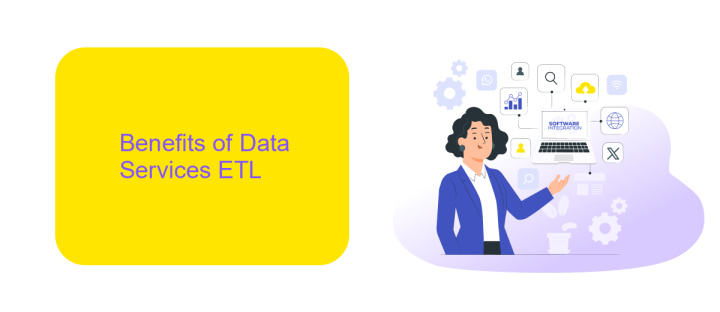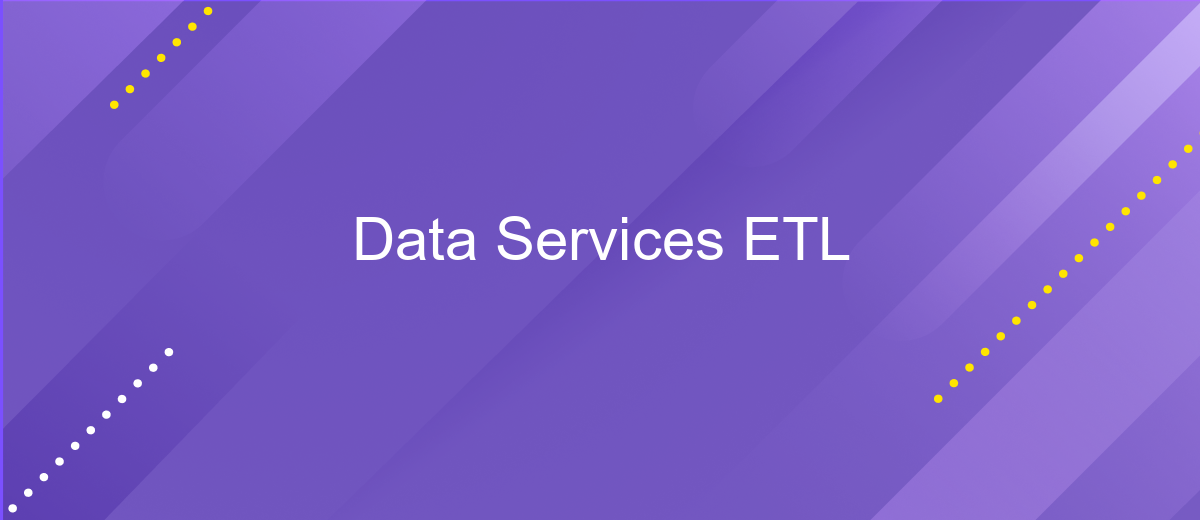Data Services ETL
Data Services ETL (Extract, Transform, Load) is a crucial process in data management and analytics, enabling organizations to efficiently gather, transform, and load data from various sources into a centralized system. This process ensures data consistency, accuracy, and accessibility, making it indispensable for informed decision-making and strategic planning. In this article, we will explore the key components, benefits, and best practices of ETL in Data Services.
Introduction
Data Services ETL (Extract, Transform, Load) is a crucial process in the modern data-driven world. It involves extracting data from various sources, transforming it into a suitable format, and loading it into a target database or data warehouse. This process ensures that data is clean, consistent, and ready for analysis, enabling organizations to make informed decisions based on accurate information.
- Extract: Gathering data from various sources such as databases, APIs, and flat files.
- Transform: Cleaning, normalizing, and enriching the data to meet business requirements.
- Load: Importing the transformed data into a target system for analysis and reporting.
One of the tools that can significantly streamline the ETL process is ApiX-Drive. This service allows for seamless integration between different platforms, automating data extraction and transformation tasks. By leveraging ApiX-Drive, organizations can reduce manual efforts, minimize errors, and ensure that their data is always up-to-date and ready for use. As a result, businesses can focus more on analyzing data rather than managing it.
Benefits of Data Services ETL

Data Services ETL (Extract, Transform, Load) offers numerous advantages for businesses looking to streamline their data management processes. One of the key benefits is the automation of data workflows, which significantly reduces the manual effort required for data extraction, transformation, and loading. This leads to increased efficiency and accuracy, as automated processes minimize the risk of human error. Additionally, ETL tools can handle large volumes of data from multiple sources, ensuring that businesses have access to comprehensive and up-to-date information for better decision-making.
Another significant benefit of Data Services ETL is the ability to integrate various data sources seamlessly. Tools like ApiX-Drive facilitate the integration process by allowing businesses to connect different applications and data sources without extensive coding knowledge. This not only saves time but also enables businesses to quickly adapt to changing data needs. By using ApiX-Drive, companies can ensure that their data is consistently synchronized across platforms, providing a unified view of their operations. This holistic approach to data management fosters more informed strategic planning and enhances overall business performance.
Implementation of Data Services ETL

The implementation of Data Services ETL involves a systematic approach to extract, transform, and load data efficiently. Initially, data is extracted from multiple sources such as databases, APIs, and flat files. This raw data is then transformed through various processes including filtering, sorting, and aggregating to ensure it meets the required quality and format for analysis.
- Extract data from various sources.
- Transform data to meet quality standards.
- Load data into the target data warehouse or system.
Tools like ApiX-Drive facilitate seamless integration by automating the data extraction process from diverse sources, ensuring that the data is always up-to-date. After extraction, the data goes through transformation processes where it is cleaned and formatted. Finally, the transformed data is loaded into the target system, making it ready for analysis and reporting. This streamlined ETL process ensures data integrity and accessibility for end-users.
Use Cases for Data Services ETL

Data Services ETL (Extract, Transform, Load) plays a crucial role in modern data management by facilitating the seamless integration and transformation of data from various sources. These services are indispensable for organizations aiming to harness data-driven insights and make informed decisions. By automating the data flow, ETL processes ensure data accuracy, consistency, and availability.
One practical application of Data Services ETL is in the realm of business intelligence. Companies leverage ETL tools to extract data from disparate sources, transform it into a unified format, and load it into data warehouses. This enables comprehensive analytics and reporting, driving strategic initiatives and operational efficiency. Additionally, ETL services are vital in maintaining data integrity during system migrations and upgrades.
- Data Integration: Combining data from multiple sources into a cohesive dataset.
- Data Warehousing: Loading transformed data into a central repository for analysis.
- Data Quality Management: Ensuring data accuracy and consistency across systems.
- System Migration: Facilitating the transfer of data between different platforms.
- Real-time Data Processing: Enabling real-time analytics and decision-making.
Tools like ApiX-Drive simplify the setup of integrations by providing a user-friendly interface for configuring data flows between various applications. This reduces the need for extensive coding and accelerates the deployment of ETL processes. As a result, businesses can quickly adapt to changing data requirements and maintain a competitive edge in the market.
- Automate the work of an online store or landing
- Empower through integration
- Don't spend money on programmers and integrators
- Save time by automating routine tasks
Conclusion
In conclusion, Data Services ETL plays a crucial role in modern data management by enabling seamless extraction, transformation, and loading of data across various platforms. The efficiency and accuracy of these processes are vital for organizations to derive meaningful insights and make informed decisions. As businesses continue to evolve, the demand for robust ETL solutions will only increase, making it essential to stay updated with the latest tools and technologies.
Integrating data services can be streamlined with platforms like ApiX-Drive, which offer user-friendly interfaces and powerful automation capabilities. ApiX-Drive simplifies the process of connecting various data sources, ensuring that data is consistently accurate and up-to-date. By leveraging such services, organizations can enhance their data workflows, reduce manual intervention, and focus on strategic initiatives. Ultimately, adopting advanced ETL solutions and integration tools will empower businesses to harness the full potential of their data.
FAQ
What is ETL in Data Services?
Why is ETL important for businesses?
How can ETL processes be automated?
What are the common challenges in ETL processes?
How can data integration be simplified?
Apix-Drive is a simple and efficient system connector that will help you automate routine tasks and optimize business processes. You can save time and money, direct these resources to more important purposes. Test ApiX-Drive and make sure that this tool will relieve your employees and after 5 minutes of settings your business will start working faster.


